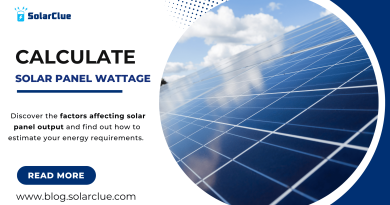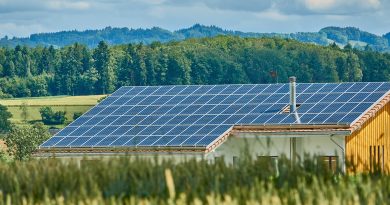Can I Buy Solar Panels?
Investing in solar panels is a significant step towards sustainable living and reducing energy costs. This comprehensive guide will help you navigate the process of buying solar panels, from understanding your energy needs to exploring financing options and finding reputable installers.
Table of Contents
Determining Your Energy Needs
Before purchasing solar panels, assess your household’s energy consumption. Review your electricity bills to determine your average monthly usage in kilowatt-hours (kWh). This information will help you calculate the size of the solar panel system you need. Typically, a higher energy consumption will require a larger system, which means more or higher wattage panels.
Choosing the Right Panel Type
Monocrystalline
Monocrystalline panels are made from single-crystal silicon. They are known for their high efficiency and long lifespan but come at a higher cost.
| Pros | Cons |
|---|---|
| High efficiency (up to 22%) | Higher cost |
| Space-efficient due to higher power output per square foot | |
| Long lifespan (up to 25 years) |
Polycrystalline
Polycrystalline panels are made from multiple silicon crystals. They are less efficient than monocrystalline panels but are more affordable.
| Pros | Cons |
|---|---|
| Lower cost | Lower efficiency (15-17%) |
| Less silicon waste in manufacturing process | Larger space requirement for the same output |
Thin-Film
Thin-film panels are made by depositing thin layers of photovoltaic material onto a substrate. They are flexible and lightweight but have the lowest efficiency.
| Pros | Cons |
|---|---|
| Lightweight and flexible | Lowest efficiency (10-12%) |
| Lower cost | Requires more space for the same output |
| Better performance in high temperatures and partial shading | – |
Understanding Warranties and Certifications
When purchasing solar panels, it’s crucial to understand the warranties and certifications that come with them.
1. Performance Warranty: Typically 25 years, ensuring the panel will produce a certain percentage of its rated power output over its lifespan.
2. Product Warranty: Usually 10-12 years, covering defects and failures.
3. Certifications: Look for certifications such as IEC (International Electrotechnical Commission), UL (Underwriters Laboratories), and TUV (Technischer Überwachungsverein). These ensure the panels meet international safety and quality standards.
Finding Reputable Installers
Selecting a reputable installer is crucial for the performance and longevity of your solar panel system.
Steps to find a reputable installer
Research: Look for reviews and ratings online.
Certifications: Ensure the installer is certified by recognized bodies.
Experience: Choose installers with extensive experience and a strong track record.
Quotes: Obtain multiple quotes to compare prices and services. We provide top brands of solar you can consult us too.
References: Ask for references and speak to previous customers about their experiences.
Exploring Financing Options
Loans
Solar loans allow you to finance the upfront cost of your solar panel system. You repay the loan over time, often with interest. Some loans are specifically designed for solar installations and offer favorable terms.
| Pros | Cons |
|---|---|
| Ownership of the system | Interest costs |
| Potential tax benefits | Credit approval required |
| Fixed monthly payments |
Leases
With a solar lease, you pay a fixed monthly amount to use the solar panel system. The leasing company owns the system and is responsible for maintenance.
| Pros | Cons |
|---|---|
| Lower upfront cost | No ownership of the system |
| Maintenance covered by the leasing company | Monthly lease payments |
Power Purchase Agreements (PPAs)
In a PPA, a third-party developer installs the solar panel system on your property and you purchase the electricity generated at a predetermined rate, usually lower than the local utility rate.
| Pros | Cons |
|---|---|
| Lower electricity costs | No ownership of the system |
| No upfront cost | Long-term contract |
Government Incentives and Rebates
Government incentives and rebates can significantly reduce the cost of installing solar panels. In India, schemes like the Pradhan Mantri Surodaya Yojana provide subsidies for solar installations.
Key incentives and rebates:
1. Central Government Subsidy: Up to 30% subsidy on the benchmark cost.
2. State-Specific Subsidies: Additional subsidies and incentives provided by individual states.
3. Tax Benefits: Accelerated depreciation and tax credits for commercial installations.
Conclusion
Buying solar panels is a significant investment that requires careful consideration of your energy needs, panel types, financing options, and installation methods. By understanding the key factors and following this guide, you can make an informed decision that maximizes your return on investment and contributes to a sustainable future.
Here at SolarClue®, we offer a smart, practical, and “beautiful” solution. You will be answered for all the questions related to Solar.
We provide all kinds of brands that are the Best Solar panels in India.
If you are the one who is planning for the solar power system. Don’t hesitate to contact our team!
Looking forward to empowering you with solar energy, just like hundreds of our other clients!



